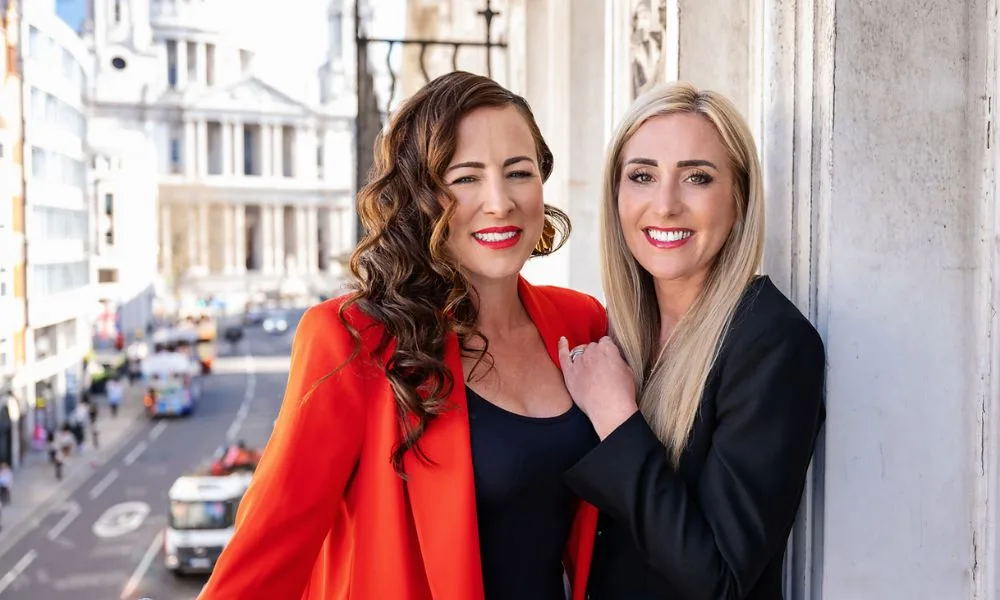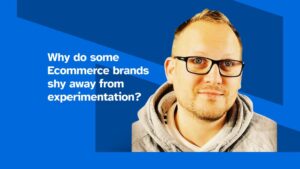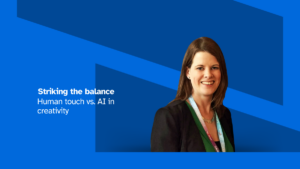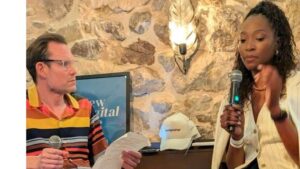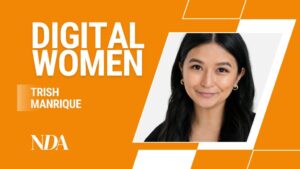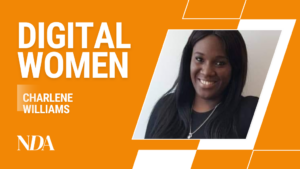Sarah Wilson and Lisa Goodchild are the co-founder of Digilearning; a UK charity dedicated to educating children, parents, and teachers with digital skills. As a charity Digilearning have reached over 50,000 people across the globe with digital skills, from workshops in schools, career development days – to developing an online safety platform for parents. It recently created the award-winning DIGIRISE and GIRLRISE mentoring and career development programmes.
Why did you launch Digilearning and in particular GirlRise, what were you hoping to achieve?
Our aim when we launched Digilearning was that we wanted to educate all children, parents, and teachers with digital skills. Digital has changed the world and has the ability to really change lives; and we know this from our own experiences.
Our online career and mentoring programmes DigiRise and GirlRise came into fruition during the pandemic. We had partnered up with two other charities and created a short skills training platform called YRD and realised there was a serious need to help young people with digital skills and career advice.
Our courses were packed and over 6 months we had trained over 800 young people. We then had a new mission; to get young people from all backgrounds interested in digital careers and create pipelines into the industry for them. As we know the world of work is rapidly changing; practically all jobs require digital skills and we need to prepare our young people with the right skills and the right mindset to take advantage of the opportunities the digital space has to offer.
The GirlRise programme was actually born after speaking to Hewlett Packard about sponsorship for our DigiRise programme (which is basically the same as GirlRise but a mixed cohort.) They had a whole agenda for getting more girls into tech and we came up with the idea to do a girls only cohort and pitch it to them; but they still did not sponsor us! We weren’t deterred and set up GirlRise anyway and it’s now in its second year. We are extremely proud that we created a new army of girls that are passionate about the industry and we will continue to fly the flag for getting more girls into digital careers.
We are still on a mission to educate young people that there is more to digital than coding and IT, it’s a state of mind and not just a skill set, also it’s not always about having all the resources yourself but the ability to find them. We say you can teach yourself anything on YouTube nowadays. This year we are continuing our online programmes but are also going back to face to face events too. We have the most phenomenal pool of creativity and talent and need to ensure we are giving them the right opportunities to create the next digital leaders of the world!
What are the biggest challenges, and opportunities for women in the industry today?
We all know getting more women into tech is smart for business and good for the economy but we are under-represented in the whole tech scene. In some top technology companies the percentage of women employees is still really low. Looking at Google for example the female workforce (according to data of June 2021) is 33%, Microsoft it’s 29%. That’s just crazy! Girls are discouraged from going into tech as they don’t see role models in the industry.
With GirlRise we have been getting girls interested in digital careers in that key transition period between school and entering the world of work with great success. As we talk more about the breath and depth of roles available it will be more appealing.
We do know however, that another major issue is the lack of opportunities to progress once women do get into a tech career and we won’t even start on the whole having children debate! Tech Companies need to work harder to be more flexible and appealing to women.
What does the industry need to do to better champion women?
Wage inequality compared to male colleagues is always an issue when it comes to championing women in tech industries in fact ALL industries. How can we expect to feel empowered when we are undervalued and underpaid compared to our male colleagues? There is always the issue of workplace gender bias too when it comes to promotion so as women we need to go for that promotion, and as businesses we need to encourage and champion the women that do.
Women are vastly underrepresented in the global technology workforce. A famous saying of ours is that you can’t be what you can’t see, so in order for us to champion women in digital better we need to put more female leaders on a pedestal and shout loud about their achievements. A shortage of female role models is always an issue for the young girls we speak to about getting into those tech roles that are crying out for female talent.
We are big advocates for mentoring programmes, and think they should be essential in companies. If you’re a high performing woman in tech make yourself available to give advice and feedback to other women at different career stages. I really believe today’s mentees will be tomorrow’s leaders. We are always looking for more mentors for our programmes so if this appeals to you please get in touch with us.
You work with companies across the digital ecosystem – what are the biggest challenges, and opportunities overall for digital advertising this year?
There are massive opportunities this year in the advertising industry especially as ad budgets are on the rise in 2022, the sector seems to be growing at an impressive rate.
Attracting, finding and retaining young talent in industry is always a massive challenge for the ad industry, but with programmes like ours we are opening up the doors to help businesses target multicultural and working class talent, training them and helping them flourish. We aim to help the industry find their superheroes and students to find their super powers.
With the aftermath of COVID-19 businesses are really having to find ways to really engage with their employers and make how we work, the transition from an office-centric culture to more flexible is great for women in particular. I think the hybrid model of working puts more emphasis on the ability for example for working mums to not miss out and also doing away with old school office culture.
Sometimes organisations are missing out on exceptional talent because they’re failing to work with the right agencies that deliver gender inclusive recruitment or supporting charities and programmes like ours.
What is your biggest achievement in digital to date?
Seeing our students grow in confidence, getting new skills and thriving that’s our biggest achievement. Last year at MADFest is a perfect example of seeing our kids smash it! We took 12 of our students of different ages, and from different locations across the UK.
They were given a brief by Natwest to review their Career Sense product, let them know what they thought present their findings on stage on day two of the event. Each student was given the opportunity to talk on stage, they had great insights – not only did they review the product but they also thought of an advertising campaign to promote it. referencing key influencers and individuals they felt would benefit the product and appeal to the target audience.
They blew us away and impressed the brand too. The feedback was so well received they were asked back to present their findings to the entire UK Natwest marketing team. We were super proud of our students that day and everyday seeing them achieve their goals is the most rewarding part of the job.



